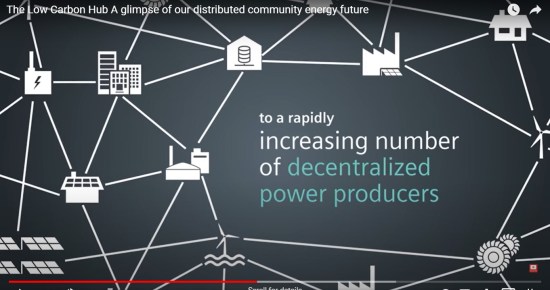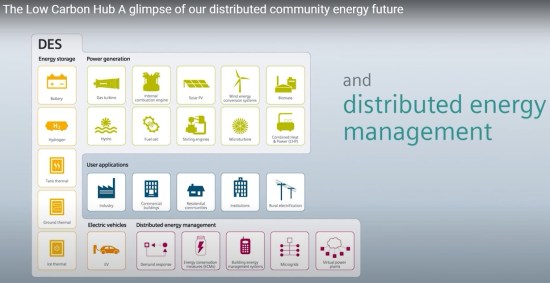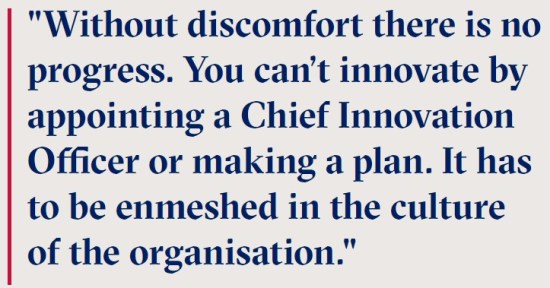Climate science demands immediate reduction of greenhouse gases. Electricity can replace fossil fuels for many uses, but how that energy is generated and distributed is vitally important. A video posted by UK based climate and energy commentator Dave Borlace of Just Have a Think has useful information for people concerned about energy policies in British Columbia:
The business model featuring a one way street of electricity supply from huge centralised generator to captive, submissive consumer will soon be consigned to the history books, replaced by a smart distributed grid with multi-directional imports and exports, often driven by local community schemes.
Sadly, BC Hydro management clings to its outdated model and has zero apparent interest in moving to a smart distributed grid. That’s why the utility has had little interest in wind and solar power sources. In quantity, these would force a complete restructuring of BC Hydro’s grid system.
In 2018, the public utility moved to end incentives for homeowners generating electricity and feeding excess amounts into the grid. The change affected fewer than 1,500 customers but the policy alteration was driven by knowledge that steadily declining solar prices would cause the number of self-generators to increase exponentially.



Low Carbon Hub describes itself:
We’re a social enterprise that’s out to prove we can meet our energy needs in a way that’s good for people and the planet.
A New Energy System
The days of fossil fuels are numbered. The shift to renewable generation is gaining pace and gives us the opportunity to reshape the way we manage our energy.
We are calling for the creation of a new system that:
• has renewable generation and energy efficiency at its heart, reducing carbon emissions
• makes the money we spend on energy work harder for the benefit of our communities and strengthening the local economy
• supports the creation of more locally-owned community energy projects, putting local power in the hands of local people
• makes our homes, businesses, and community buildings more healthy and comfortable
• is smart and flexible so as to be able to make the most of future technological solutions.

Forbes Magazine examined the future of energy systems and concluded:
…long distance delivery of power is less likely to be needed. In fact, long distance, high-tension cabling could account for as much as 30% of all electricity costs in some cases, so the cellular paradigm is inherently cheaper from this point of view.
In the new grid, production and consumption exist within the same household or factory or campus unit, but at any one time they’re either producing, consuming or storing (or some combination of the three).
They also will be doing some reciprocal activity with another household cell nearby…
Change at BC Hydro will not come voluntarily. The corporation has followed the same business style for 60 years. Its management is comfortable, well rewarded and unwilling to encourage disruption. Senior provincial bureaucrats—the high-priced help who direct politicians—lack the vision needed for change.
John Horgan had the opportunity in 2017 to alter the status quo by introducing deputy ministers and managers ready to embrace energy innovation and new technologies. He did not.
A study by MIT Sloan School of Management found that lack of urgency results in companies slow to adopt technological change. Failure to adapt means extinction.

London Business School, Going extinct: why corporate giants die:
In the mid-1920s, 90 years happened to be the average lifespan of a leading company. Ninety years for us, 90 years for our companies: a neat mirroring of our own existence in what we made manifest in the world.
By the 1950s, the average company lifespan was down to 60 years. Today, it is a mere 17 years.
The survival prescription by LBS Authors Nandkishore and Lafferty proposes companies embrace mavericks within the organization, encourage new ideas, and protect innovators from interference. Internal resistance is often fierce.

BC Hydro does not prioritize innovation or self-reflection. Political oversight of the company relies on directors and “assurance advisors” hand picked from lists of familiar consultants and executives ready to approve existing strategies. Instead of protecting maverick thinkers, BC Hydro management removes them. The company prevaricates and conceals information from the public for extended periods. It spends millions on public relations to present a glowing picture of corporate competence.
As a monopoly able to charge whatever it needs to survive, BC Hydro can stumble along, perhaps for another 20 years. But as the utility’s prices rise well beyond alternative sources, customers, particularly large users, will adopt other solutions. When that happens, call the corporate undertaker.
Categories: BC Hydro




A modest proposal. Every year the Canadian citizens should execute two CEO s. Done by simple polling. My cranky neighbor suggested the number be expanded to include another from the oil and gas sector. Easily done. BC Hydro would certainly have a candidate.
LikeLiked by 1 person
BC Hydro has one word that is not in their vocabulary and employees are forbidden to use it or face grim repercussions. The word id drought.
LikeLike
Hi Norm. No doubt you are aware of the record low reservoir levels behind the Hoover, Glen Canyon and Oroville dams in the United States. As a result of the low reservoir levels power generation is reduced. I believe this is a prelude to what BC Hydro will soon face. BC Hydro depends on predictable snow packs and glacial melt which are both receding. In BC, glacier are forecast to be gone within 25 years. Try and generate power without snow pack and glacier melt. Good luck. Where were all BC Hydro’s thought leaders when the go ahead for Site C was being discussed.
LikeLiked by 2 people